The very first word that shows up on a headline, in a research paper, or even in a passing conversation when describing a child who has lost their father, or whose father is no longer in their life, is fatherless.
That is the first label they hear. The first way the world decides to describe them, not as a child with dreams or potential, but as one without a father. Without the person who could have given them not just protection or support, but love.
It becomes the first word that defines them, and the first word they learn to see themselves through.
Not only does this label affect them psychologically, but it also isolates them. It makes them feel as though their father has vanished completely, as if he never thinks of them, will never cheer them on when they make an accomplishment, or smile at their milestones.
Yet what if this were not the case? What if their father is still there, but in a different way? What if there could be another kind of support, a second family, that reminds them his figure is still present, celebrating their wins, pushing them forward, and helping them dream beyond what the world expects of them?
In many ways, the Not Alone program by Coptic Orphans, an international development organization that supports over 100,000 children across Egypt, was created to do exactly that: not only to offer a set of services, but to become a second family. A family that nurtures, protects, and stands by orphans, widows, and children who have lost their fathers, to remind them that they are never truly alone, and that this second family will continue to be there for them for years to come.
“When I found out about this program, they truly became my second family,” shares Demyana Nageeb, one of the beneficiaries of the Not Alone program. “I joined when I was only six years old, and from that moment, I heard a phrase that changed my life: ‘Go forward, and we will always be with you.’ Those words made me feel like there were no limits to my dreams.”
Instead of seeing them solely as girls without fathers, the program helps them see themselves as powerful, ambitious, and resilient. It begins at the very root of a child’s growth: their sense of self and confidence.
“Egypt’s daughters are powerful. Egypt’s daughters are geda’an (resilient),” says Nermien Riad, founder of Coptic Orphans. “We want to see Egypt’s daughters like the lotus flower, blooming and growing with strength and grace. Because when girls rise, entire nations thrive.”
Never Alone
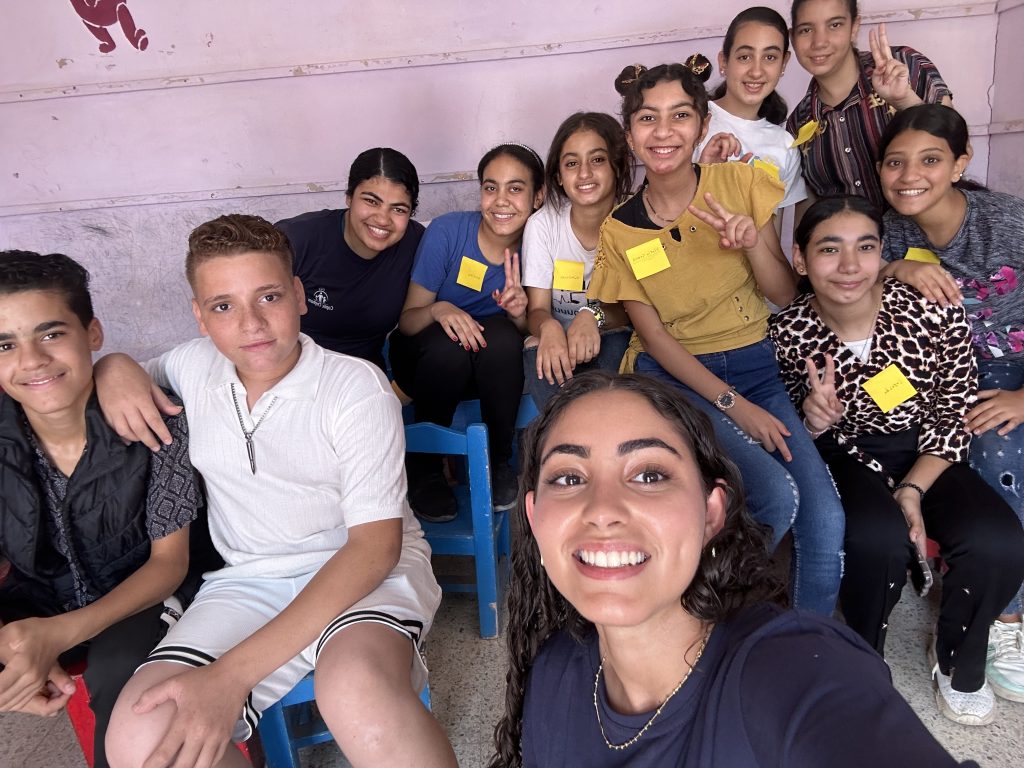
The number of challenges a family faces after losing the father is almost impossible to capture in one sentence, from being pushed out of social and community circles, to falling into poverty, losing support systems, and facing isolation, all the way to losing their livelihood and property after the father’s death.
In many cases, the widowed mother receives little to no support from the father’s family, even though, by law, the father’s relatives are financially obligated to care for the children if they have the means to do so.
In these deeply challenging moments, when a family suddenly loses every form of support, mothers and children often find themselves stripped of hope and the strength to move forward. They may begin to turn against themselves and their community, and, most painfully, begin to lose faith altogether.
“We’ve had cases where a mother completely lost faith and grew angry with God,” says Angie Atef, Campaigns Manager, speaking to Egyptian Streets. “Some would hear the church bells and say, ‘I hope it’s someone else’s father who has passed, so I’m not the only one suffering.’ The weight of what they go through can be so overwhelming that it shakes their very faith.”
While countless development programs are working to end the cycle of poverty, what makes this program stand out is how rooted it is in the Egyptian context; it was imagined, built, and brought to life by Egyptian minds and hands. The same people who continue to live among and understand the very communities they’re helping.
Grounded in an understanding of what it means to be an Egyptian family or an Egyptian widow, the program takes a holistic approach to a child’s growth, nurturing character, physical and mental well-being, and the role of faith and community through partnering with 218 community development associations.
Every service offered is shaped by the language, culture, and traditions of the people it serves, even down to small, meaningful gestures, like buying a child new clothes for a religious holiday to lift their spirits. Since the program began, more than 7,900 children have graduated from university, entering top fields such as medicine and engineering, while over 11,000 widowed mothers have gained financial literacy and access to formal banking services.
Mariam Ibrahim, originally from a small village in Minya called Kom Al Mahras, still remembers how the program became a constant presence in her life, from shaping her motivation to guiding her step by step. The volunteers’ visits were often more than check-ins; they also included moments of care and intimacy, something she describes as the ‘warmth of a second family.’
“I joined the program after my father passed away, when I was six years old,” says Mariam.
“We were struggling financially, and my mother didn’t know how we would afford school. There was a big chance I wouldn’t be able to continue my education. Then one day, a volunteer knocked on our door and told us about the Not Alone program.”
From that moment on, Mariam not only began receiving financial support to continue her education, but also tutoring lessons at home, as well as opportunities for her and her family to attend workshops and retreats to connect with others facing similar situations.
“The volunteers from the program encouraged my mother to let me continue my education,” Mariam says. “They told her, ‘Don’t worry, we’ll cover all the school and tutoring expenses, you don’t have to pay anything.’ They even bought me clothes during religious holidays.”
Although her mother was already working, the income was only enough to keep the household afloat. After receiving additional support from the volunteers, she no longer had to worry about her children’s education.
“Someone else was now taking responsibility for it, so she was less stressed about the expenses,” Mariam notes. “Our education was the biggest financial burden for my mother.”
On some days, the volunteers would visit her home with books, she recalls. “They’d say, ‘If you read this book, you’ll do great in school.’ It might sound simple, but that encouragement made me want to succeed,” she says. “I started getting top grades, and I became so determined that I’d be upset if I lost even one mark. That motivation came from them. They believed in me before I even knew how to believe in myself.”
In Kom Al Mahras, the small village where Mariam grew up, opportunities for girls are rare, if not non-existent, as most are expected to marry early or work rather than pursue a university degree.
“In my village, it was always believed that boys should be educated first,” she says. “My mother worked hard, but what she earned barely covered our expenses.”
To ensure the impact extended beyond the girls, the project also worked to engage the broader community and shift perceptions around girls’ education. “They didn’t just focus on us children,” Mariam explains.
“They also worked with our mothers and brothers, holding workshops on how to raise their daughters, how to be confident, and how to adapt to society. They were rebuilding entire families, not just helping individuals.”
As Mariam excelled in school, one of the volunteers connected her with others from Coptic Orphans who introduced her to scholarship opportunities. “At the time, I never imagined studying at a private university,” she says. “But they guided me through every step, from filling out the forms to preparing for interviews. They were always there when I needed help.”
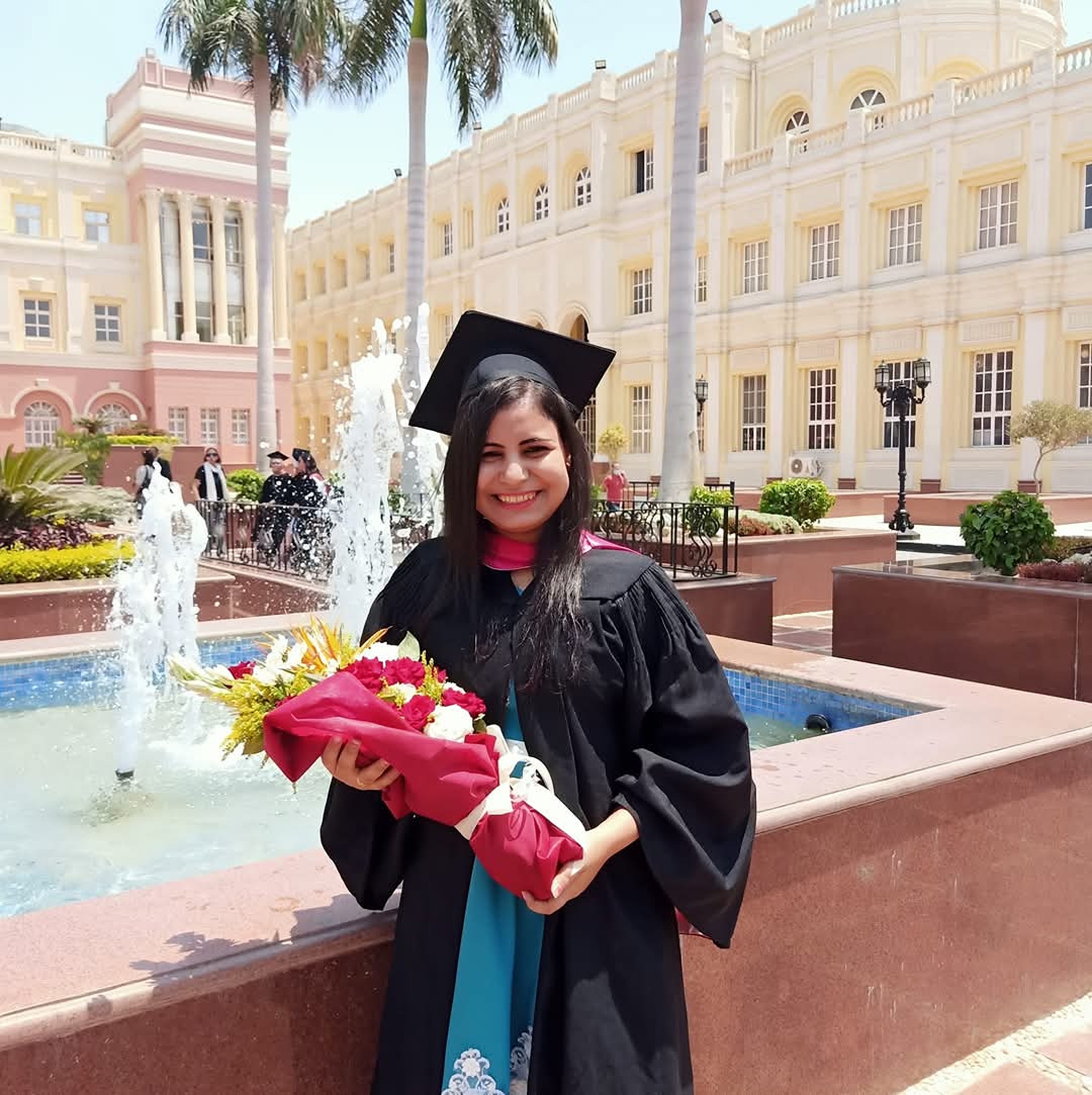
When she received the news that she had been awarded a scholarship, she says it felt like a dream. “I was completely over the moon,” she recalls, smiling. “Everyone in my village celebrated. I was the first girl to ever receive such an opportunity.”
Leaving her village for Cairo was a daunting step, though the project made the transition easier, helping her navigate the challenges of moving from a rural area to a major city and studying independently at university.
“They continued to support me after I moved,” she says. “They organized retreats and workshops where I met other scholarship students from across Egypt. We became close, like one big family. They taught me how to adapt, communicate, and build confidence in a new environment.”
Looking back, she reflects on how far she’s come since those early days. “They were, truly, like my second family,” she says. “They gave me the tools to dream and the strength to keep going.”
Beyond Societal Expectations
When a child loses their father, the first question people in the community often ask is whether that child will ever be able to grow up on the same footing as others, whether they will still have the chance to dream, to achieve, or to build a future beyond their loss.
For Demyana Nageeb, originally from Sohag, those doubts became her reality after her father’s passing. The challenges she faced were not only financial but deeply societal, shaped by the constant judgments and expectations of those around her.
“We are seven siblings, four girls and three boys, and after my father passed away, our economic situation was really difficult,” Demyana recalls. “People would constantly discourage my mother, asking how she would raise all of us alone, and saying that the four girls wouldn’t be able to help her because they’d never get a good education.”
Her mother, however, refused to listen. “My mom ignored all those comments,” she says with pride. “She did everything she could to protect us and support us with all her strength.”
It was during this difficult time that the family came across the Not Alone project, an encounter that, as Demyana recalls in her own words, changed the course of her life. Hearing the simple words “you are not alone” gave her something her surroundings rarely offered, which was a deep belief in herself and her own worth.
“It made me feel like there were no limits to my dreams. As I grew older and entered school, I became more ambitious. I studied hard, and eventually, I fell in love with learning. That’s when I decided to study biotechnology and genetic engineering at Ain Shams University,” she adds.
Despite her success, she still remembers the voices that tried to hold her back, and how deeply words and attitudes can shape a person’s sense of self and leave a lasting mark on their confidence.
“A lot of people told me, ‘Just enter any university, it doesn’t really matter. You won’t achieve anything anyway.’ And because I come from Upper Egypt, words like that hit hard. They stay with you,” she says.
Yet when she found herself surrounded by a strong circle of support, she gained the strength to quiet the negativity and hold on only to the words that lifted her up.
“When you have volunteers who visit your home, ask about you, and encourage you, you start to believe in yourself. When they say, ‘You’re not alone,’ it’s not just a slogan. It’s something I actually lived. I truly felt that I was never alone.”
By the time Demyana reached university, her connection with Coptic Orphans’ network of volunteers opened her eyes to opportunities that many young people in her community had never even heard of, let alone imagined possible.
“They helped me understand what scholarships are, something I had no knowledge about before,” she explains. “Coming from a closed environment, my community didn’t really accept the idea of girls traveling. But I applied anyway, and I got accepted for a USAID scholarship to study a semester abroad in the United States.”
From that single experience, Demyana started to believe that even though she lost her father at a young age, his presence still lives on through every milestone she achieves, carried by the network of support that continues to stand beside her.
“It changed everything for me. I joined new activities, met people from different cultures, and came back more determined than ever,” she says.
“Today, I’m a teaching assistant at Ain Shams University, and I know that I have made my father proud.”
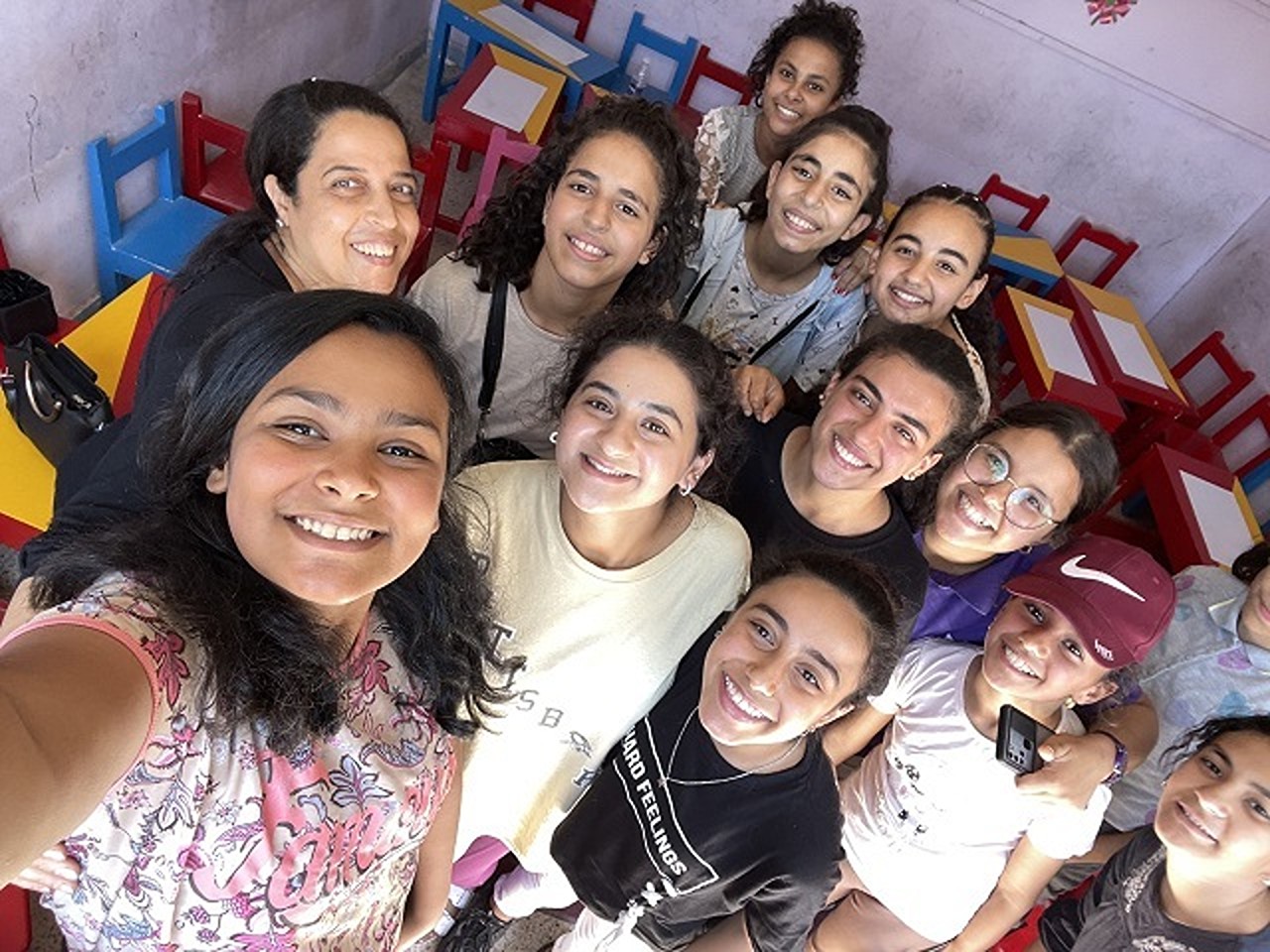



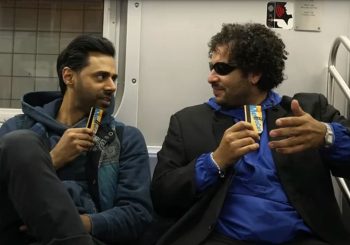
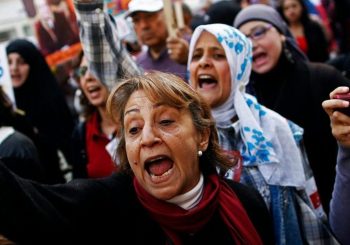
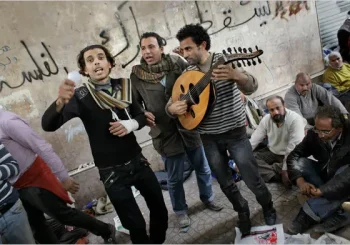
Comments (0)